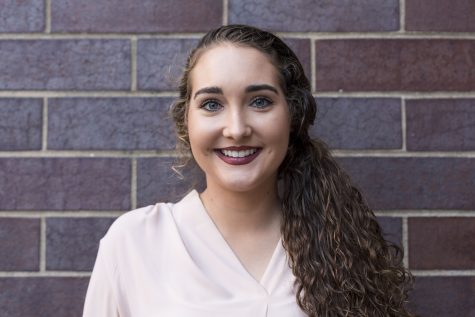College Democrats, Republicans talk immigration, education
October 9, 2015
Red and blue collided as the NYU College Republicans and College Democrats wrangled over the economics of immigration and school vouchers on Thursday at the Global Center for Academic and Spiritual Life. Their only debate of the semester kicked off with a lively discussion featuring students from across the political spectrum while the Politics Society moderated the stimulating dialogue.
Gallatin freshman Austin Serio and CAS junior Gabriel Jerome, debating for the Democrats, deliberated the economics of immigration against Republican representatives Matthew Glaser, a CAS senior, and Ivan Teo, a CAS junior. In addition, Jenny Neuman and Michael Loedel advocated for the left on school vouchers while André Marinho and Benton Madsen argued for the right.
Each pair of debaters were allotted time for an opening statement as well as a chance to rebut the contesting party’s comments. The speakers were then posed six questions by the moderator and were allowed to respond to remarks from the opposing side before issuing closing statements.
However, the debate format was highly contested by both political parties because audience members felt the speakers were not granted adequate response time.
Stern senior Ben Swinehart said the short response times were not conducive to spirited discourse and the policies were over contested and did not provide fresh outlooks.
“The format of the debate led the speakers to talk in circles,” Swinehart said. “The effort of the debaters was apparent on preparing their respective subjects, however, the arguments lacked substance because of the short time frame.”
The cross examination portion of each topic was assuredly the highlight of the evening. Audience members were kept on their toes as comments from both sides prompted outbursts from invested viewers.
Both parties agreed on certain issues such as the importance of immigration to stimulate the economy as well as the value of increasing teachers’ salaries. Nonetheless, there were plenty of controversial points.
During the first topic on the economics of immigration, Glaser and Teo asserted that labor is a function of supply and demand, and illegal immigration floods the unskilled labor market and puts downward pressure on decreasing wages. In response, Serio and Jerome proposed all inclusive immigration, whether legal or illegal, inevitably benefits the economy.
The second half of the debate on school vouchers led to an exchange over the benefits and consequences of giving parents the opportunity to send their children to institutions outside of their designated zones. While Marinho and Madsen said school vouchers give students who are struggling in the public school system a chance to attend private academies, Neuman and Loedel asserted this process cuts funding from public school in desperate need of financial support.
CAS sophomore Karina Padron said she struggled the most over the Republicans’ argument for justifying school vouchers.
“School vouchers are picking and choosing a handful of students to be allocated to these private institutions while public schools are under recognized and under funded,” Padron said. “They are creating a system based on class and prioritizing the needs of selected high schoolers instead of focusing on reallocating resources to benefit the majority of students.”
LS freshman Scout Ray said watching the debate was frustrating because speakers evaded questions from the contending side.
“This debate is everything wrong with American politics,” Ray said. “Neither party said anything of importance, they merely danced around the questions for over an hour. There were so many questions they could have asked but instead they spent their time repeating themselves.”
Email Lexi Faunce at [email protected].











































































































































Hua • Oct 9, 2015 at 5:35 pm
See: https://www.change.org/p/nyu-s-board-of-trustees-stop-closing-of-the-jerome-s-coles-sports-center-at-nyu